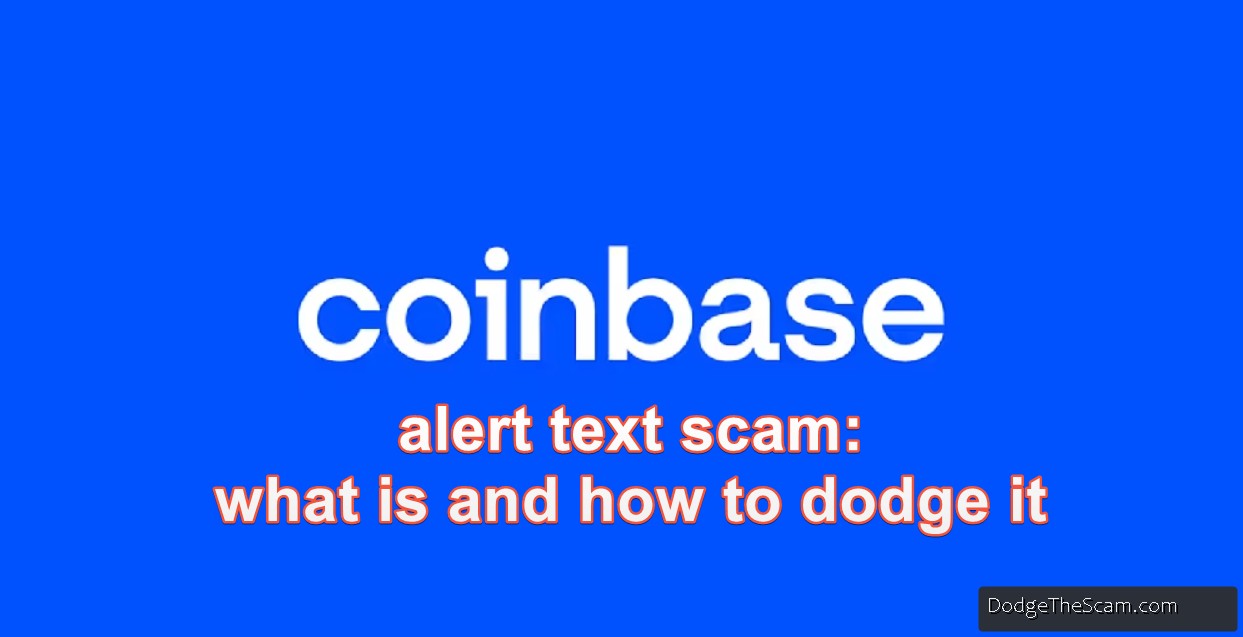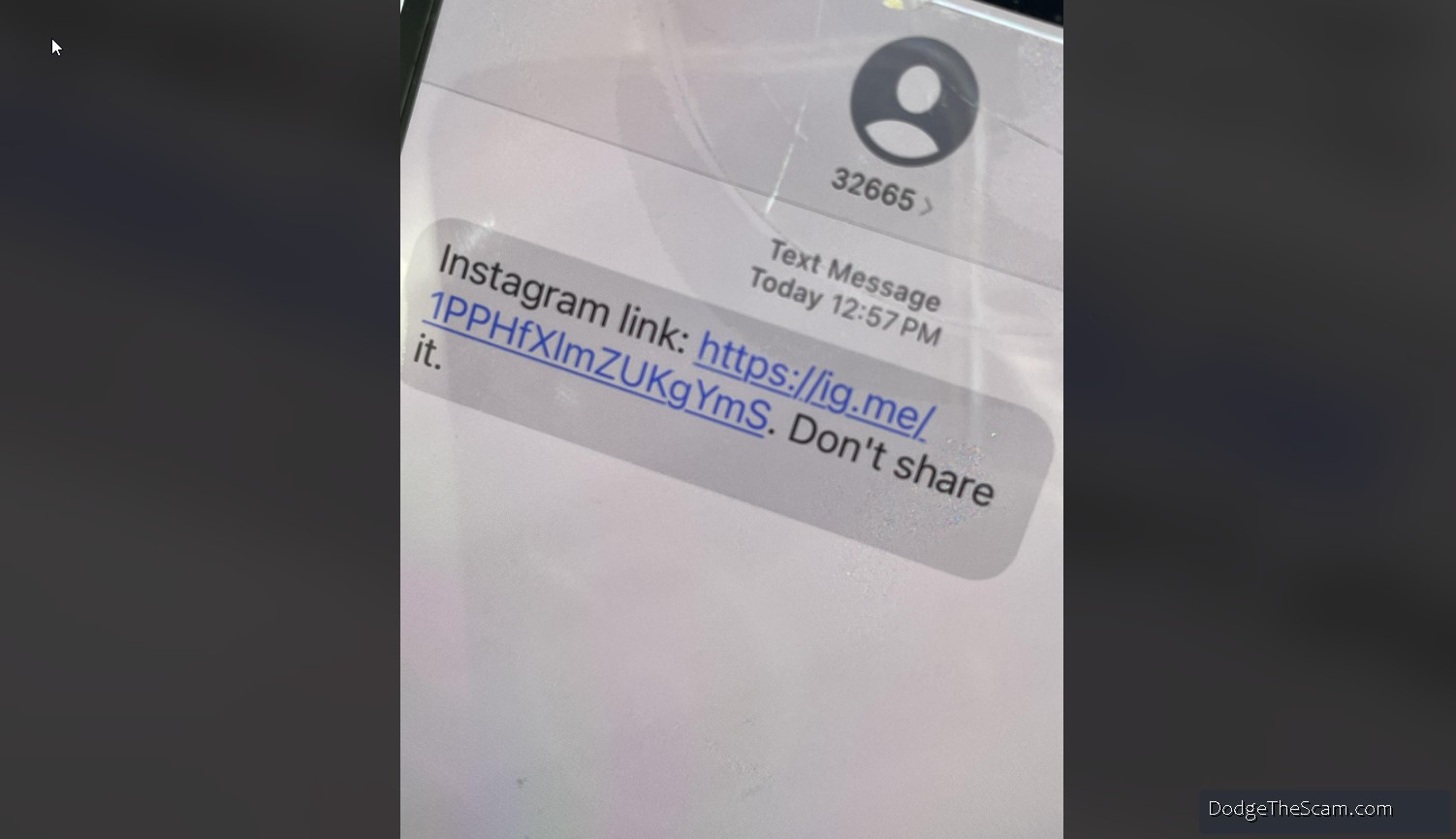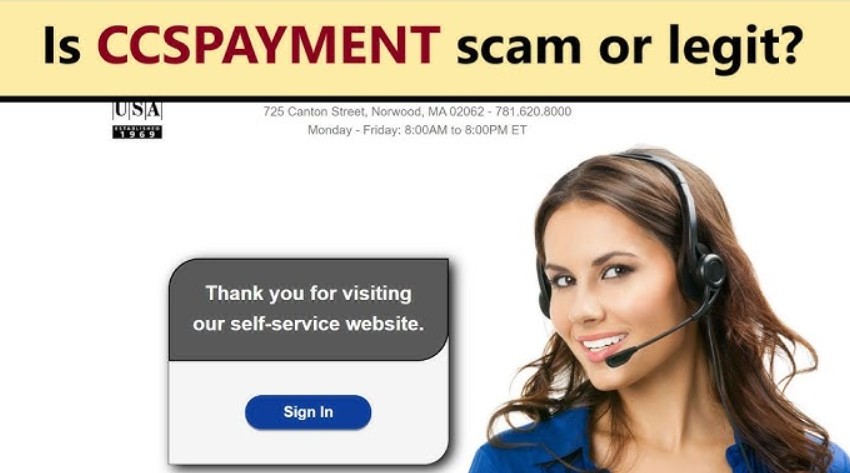Coinbase Alert Text Scam: What Is And How To Avoid It?
Coinbase alert text scam is a dangerous phishing attack where fraudsters send fake SMS messages pretending to be Coinbase. They claim you must confirm a withdrawal, verify account activity, cancel a transaction, or share a one-time password (OTP). The message may include a link or a phone number to call. These are not legitimate Coinbase alerts.
This scam is rising fast. Scammers exploit urgency and fear to trick users into giving up codes or credentials (especially the recent Coinbase databreach with insider leaks) Once they have the OTP or login, they can access your crypto wallet and drain funds.
What is the Coinbase alert text scam and why it works?
How the scam works?
- You get a text message saying something like: “Your Coinbase withdrawal OTP is 123456. If this was not you, call +1-xxx-xxx-xxxx:
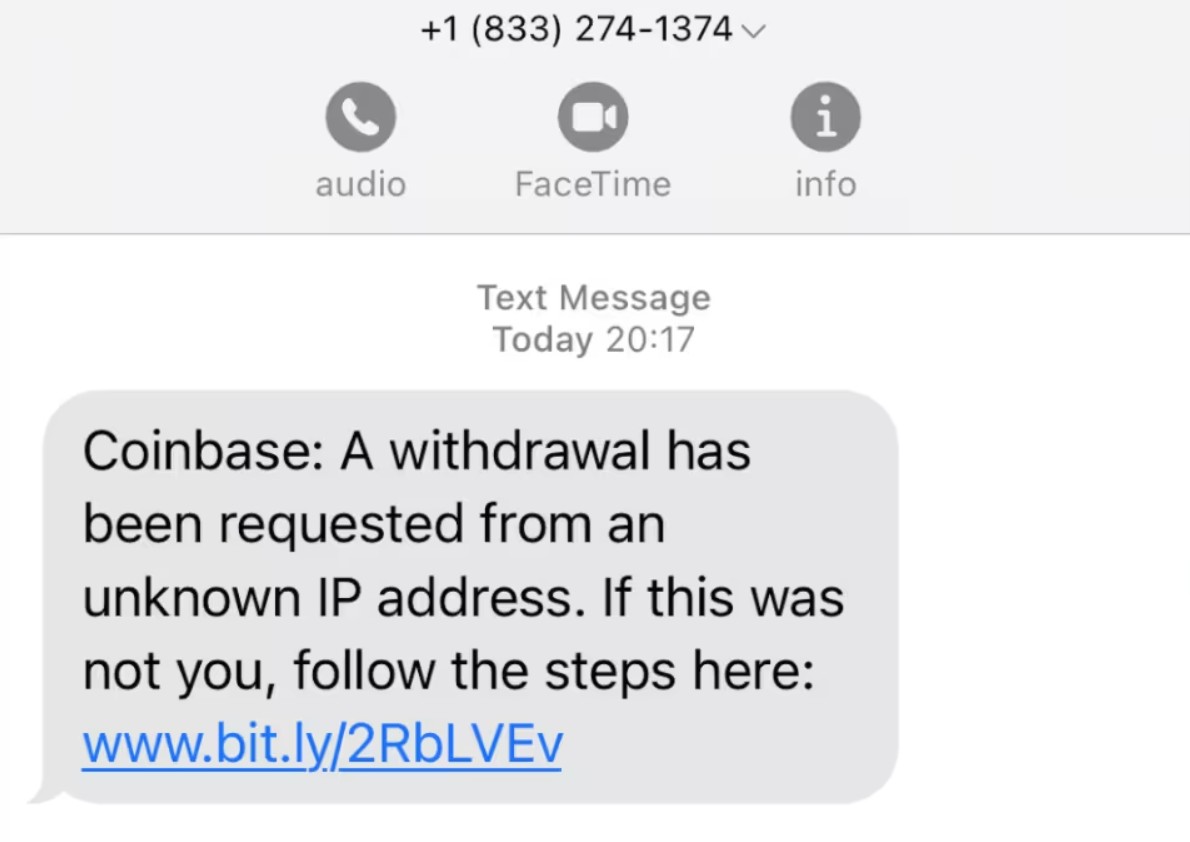
- The link or number leads you to a phishing site or a scammer posing as support.
- You might be asked to submit that code or log into a fake Coinbase page.
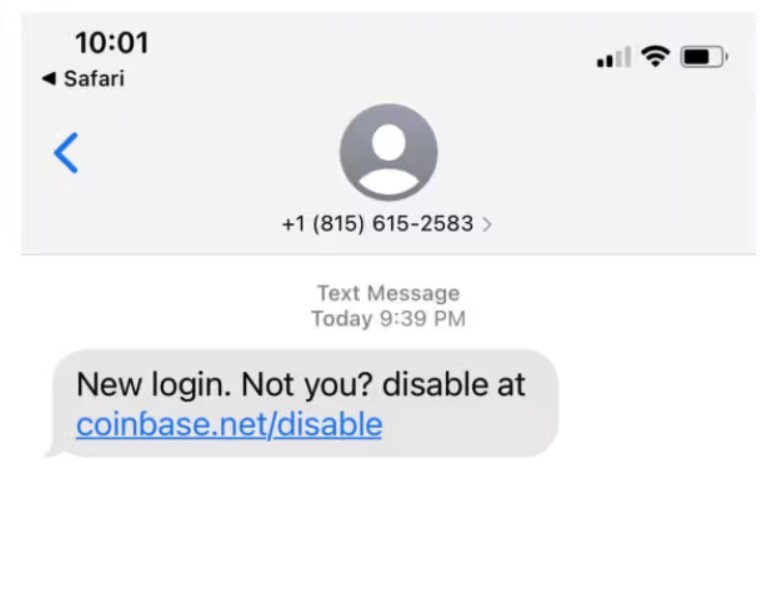
- The attacker uses that info or code to get into your real account and transfer your crypto away.
Because Coinbase is a trusted name in crypto, these messages seem legitimate. The timing, branding, and urgency increase the odds of success.
Why attacks are surging now?
- Recently Coinbase confirmed a data breach involving insider leaks. Some support agents were bribed to hand over customer data (names, phone numbers, IDs)
. - That leaked data is now used to make scam messages more convincing.
- Crypto markets rising and news around hacks make people more alert but also more likely to panic.
- Scammers are copying successful models seen in other domains (like impersonating banks) and applying them to Coinbase.
Because of this, any Coinbase-related “alert” text in your inbox should be treated as suspicious unless you confirm it directly inside the official app or site.
How to detect a fake Coinbase alert text
Look for red flags
- Unexpected OTP messages: Coinbase does not send unsolicited OTP codes by SMS for withdrawals
. - Urgent language or threats: “Immediate action required” or “Your account will be locked” is a common trick.
- Generic sender or unknown phone number: If the number doesn’t match what Coinbase uses (or it looks odd), that’s a signal.
- Links to non-Coinbase domains: Hover on a link or inspect the URL. If it doesn’t end in coinbase.com (and maybe subdomain), it’s likely fake.
- Requests for codes or passwords: Legit services won’t ask for your login or 2FA codes via text or call.
- Poor grammar or typos in the message (I like this one the most, because sometimes it’s hilarious).
- Requests to call a number given in the message: It may connect you to the scammer’s hot line.
Example in the wild
A recent scheme reported in Washoe County:
“The OTP code for your withdrawal is 736191. If this was not you please call us on +1 (877) 338-9228.”
After calling, victims are pressured to “verify” identity or move funds – traps to get access.
Compare with known patterns
These scams follow patterns seen in other frauds, like the urgent risk warning text scam impersonating Robinhood. You can read more on how that scam spreads and is detected here.
Also similar are scams like the FreeCash scam or WhatsApp Gold scam: in each, urgent text messaging is used to trick users. Learn how they operate to strengthen your defense. If you want to understand how to spot suspicious sites that may be used in these scams, see how to check if a website is legit.
How to avoid falling for the Coinbase alert scam
Best practices to protect yourself
- Never click links in SMS from unknown senders.
- Do not call numbers provided in unsolicited messages. Instead go to the official Coinbase app or website yourself.
- Use 2FA that is not SMS, such as an authenticator app or hardware 2FA.
- Bookmark the real Coinbase site and always login from that; don’t follow links in messages.
- Regularly check account activity from within the app to spot unauthorized transfers.
- Enable security alerts in your Coinbase settings, if available.
- Be cautious of “support calls”: Coinbase will never cold call you and ask for your login or codes.
- Report suspicious texts: In the U.S. you can forward them to 7726 (SPAM). Coinbase asks to send screenshots of phishing texts to security@coinbase.com.
- Learn basic phishing defense skills, like how to check if a website is legit (see link above).
- Adopt general online scam hygiene, like using unique passwords, avoiding reusing credentials, and staying updated on scam trends. See more tips to avoid online web scams.
If you ever suspect a site is fake or part of a scam ring, you can also see how people spot scams like CCSPayment.com here: ccspayment scam how to spot.
What to do if you interacted with a scam
- Immediately change your Coinbase password and email password.
- Revoke any active sessions you don’t recognize.
- Contact Coinbase support via their official site.
- If crypto was transferred out, notify law enforcement (report to the police, or relevant cybercrime agencies).
- Monitor your other accounts for suspicious activity.
Final thoughts on Coinbase alert text scam
The Coinbase alert text scam is a serious, evolving threat that uses urgency, insider data leaks, and impersonation to steal crypto. Knowing the red flags, refusing to trust messages blindly, and using strong protections can keep you safe. Stay calm, think before you act, and verify always via official channels.
FAQs
What is the Coinbase alert text scam?
It is a phishing scheme where scammers send fake SMS messages claiming to be from Coinbase, often with a withdrawal OTP or account alert, to trick you into giving credentials or codes.
Why are these scams effective?
They exploit fear, brand trust, urgency, and use data leaks to appear more legitimate. Many victims act before verifying.
Can Coinbase reimburse lost crypto from this scam?
Generally no, because crypto transactions are irreversible. But Coinbase may investigate and sometimes reimburse in exceptional cases linked to known attack campaigns.
How do I know a Coinbase message is real?
Legitimate messages will come through verified Coinbase channels. Coinbase will never ask for your password, seed phrase, or OTP in an unsolicited SMS or call. You should always log in via the app or website to check.
What should I do if I got a fake alert?
Stop interacting with it. Change passwords immediately. Report it to Coinbase by emailing security@coinbase.com and, in the U.S., forward text to 7726 (SPAM).
